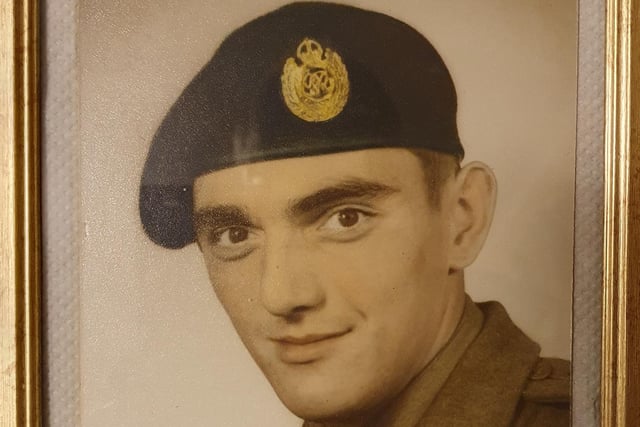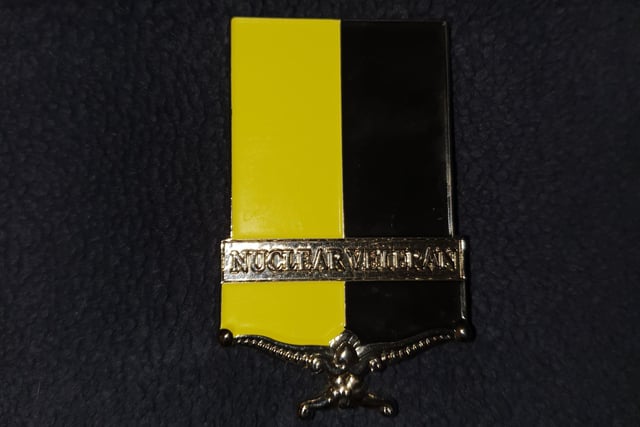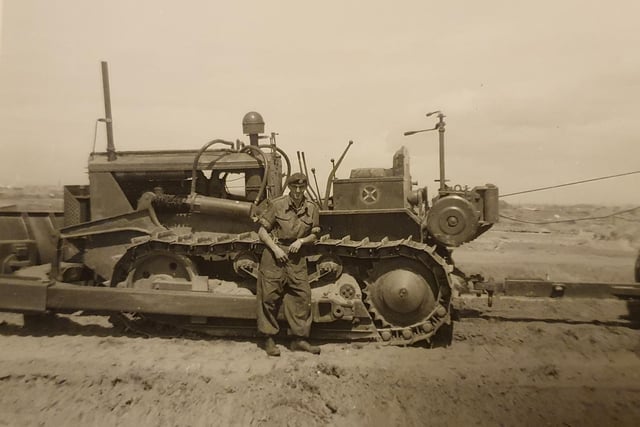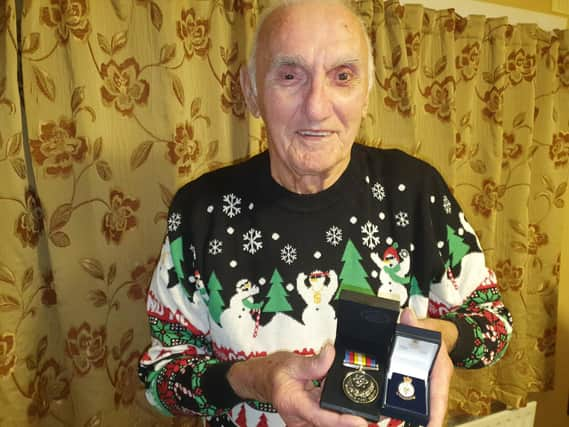John Freear, 85, originally from Hastings in East Sussex, has lived with his wife in Ruskington for 23 years, but as a young man served for nine years with the Royal Engineers, operating bulldozers and excavators.
After 70 years, veterans finally saw the newly designed Nuclear Test Medal unveiled by the British government this year which arrived just a few days ago.
The medal recognises military, civilian, and overseas staff and personnel who participated in Britain’s nuclear testing programme in the 1950s and 1960s on and around Christmas Island in the Indian Ocean.
John recalls: “I was on a training course when I was told we were going to be posted to Christmas Island. We had to sign the Official Secrets Act. We didn’t honestly know what was involved, just that it was going to be somewhere hotter than Germany, where we had been due to go.”
His job was to help maintain the roads on the island and mark targets for bombs to be dropped on the south-eastern tip of the island .
With little else to do, he said you would often see some of the thousands of crabs bearing names of soldiers who had used them in races to win beer.
John said: “We knew about atomic bombs but never talked about it much apart from asking, ‘What did you think of that last explosion?’”
John and his fellow troops would sit on the beach at main camp in full uniform and sunglasses with their backs turned to the blast and cover their eyes.
“When the blast came you could see the bones in your hands like an x-ray and could feel the heat, then there was the multi-coloured mushroom cloud.” But he professes to having no known ill effects from his year-long posting.
He now has his British Nuclear Test Veterans badge which he received recently and finally his medal. He said the veterans just wanted acknowledgement. “We were all guinea pigs. Other governments had already apologised and given veterans their medals,” he said.

1. mssp-13-12-23-nuclear test 20231205_161612-CENupload.jpg
John as a Royal Engineer. Photo: ugc

2. mssp-13-12-23-nuclear test 20231205_161949-CENupload.jpg
John's Nuclear Test Veterans badge. Photo: ugc

3. mssp-13-12-23-nuclear test 20231205_161824-CENupload.jpg
John working on the island. Photo: ugc


